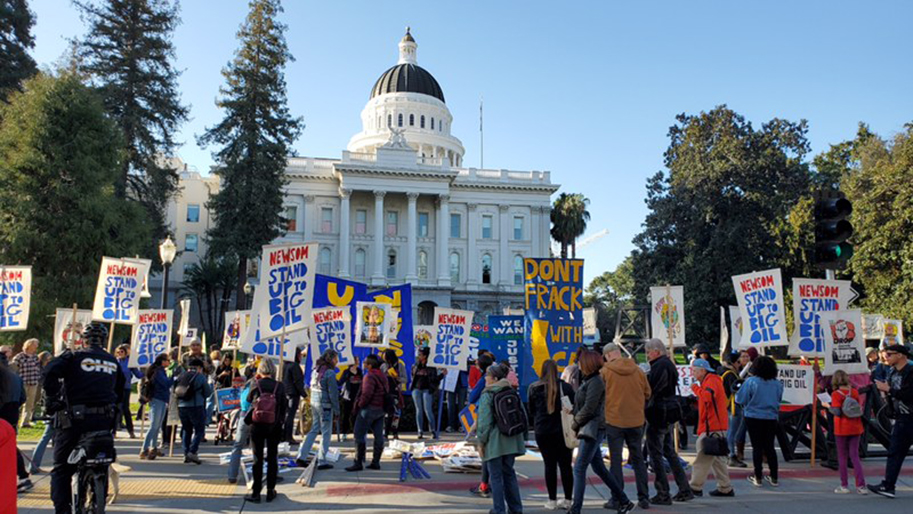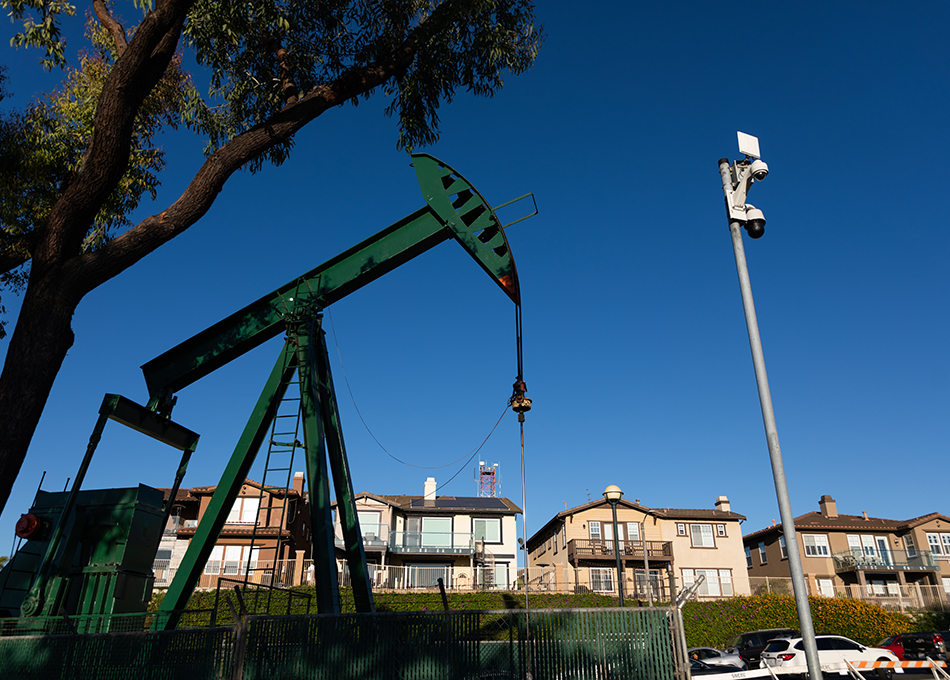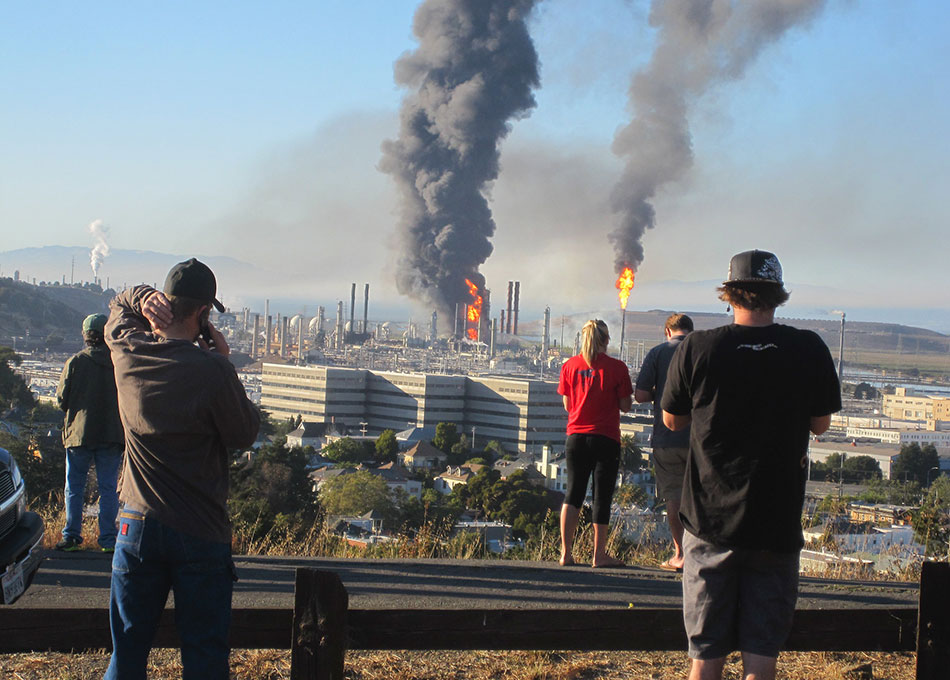Oil and Gas
Ending fossil fuel extraction and refining in California

Policies that accelerate the transition to a clean energy economy can either address supply or demand. Focusing on the supply side of the equation — extraction and refining — is critical to making sure that fossil fuels stay in the ground.
California is a top-ten oil-producing state, though production has been declining since the mid-1980s. We are already making the transition from dirty oil and gas to clean energy, but we need to move faster to secure a climate-safe future. California has the tools and the know-how to accelerate the shift off of fossil fuels, but oil and gas interests are doing everything they can to block progress in Sacramento. The Climate Center works with activists across the state, frontline community leaders, state elected officials, and more to ensure that the inevitable transition to clean energy is a just transition. In doing so, we can make sure that fossil fuel workers and their families receive the support they need.
Our Climate-Safe California platform is a roadmap to a thriving, healthy future for California. To get there, we must phase out the extraction, refining, and processing of fossil fuels.
Our Plan
Our approach to phasing out fossil fuels and transitioning to clean energy includes:
- An immediate halt to new oil and gas drilling and infrastructure development;
- A Managed Transition away from refining of combustion fuels;
- Mandating 100 percent clean electricity;
- Regulatory changes that promote distributed, resilient, clean energy and storage; and
- Mandates for all-electric buildings, with a phaseout of fossil gas.
A Managed Transition
Transitioning to an equitable, clean energy economy can and should create thousands of good jobs across California. This includes jobs in electrification, clean energy deployment, land restoration and agriculture, energy efficiency, oil well clean-up, manufacturing, and more. To make sure no one is left behind, California’s energy transition should include paid training, wage support, and relocation expenses for fossil fuel workers. When we pair policies to rein in fossil fuel production with investments in workers, our climate, economy, and communities will be better off.



